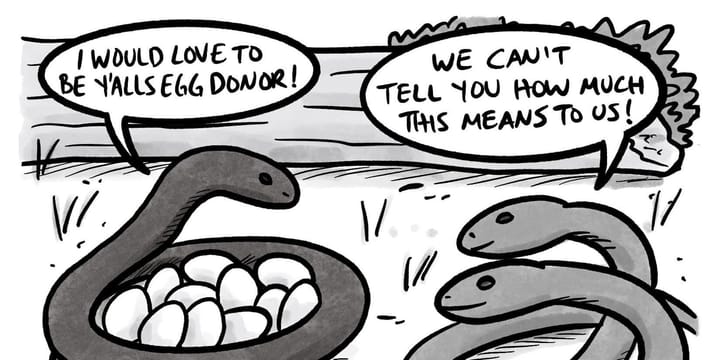Proud And Black In The Houston Improv Scene
"This offers us space, activities, and laughs. My God, don't we need a laugh right now?”

The improv comedy world is often a very white place, but in Houston two Black troupes are redefining the scene.
Amechi Ngwe first came to Houston as a teenager in 1998. His deep voice, London accent, and dazzling smile make him a natural for any performance art. Despite this, he was more of a professional fan than aspiring comedian himself. His twin brother, Nnamdi (now a writer for The Amber Ruffin Show) would perform with improv teams in Denver and Chicago, and Amechi would watch him on stage when visiting.
“Chicago was, like, Improv Mecca,” he says. “I thought I would never get up. That’s his thing. Then a friend suggested I take some classes in Houston and immediately fell in love.”
That was with Station Theater, and it was where Ngwe met Tandiwe Kone. The two of them would soon form the backbone of a new Black improv scene in the city.
Kone is almost the polar opposite of Ngwe except in one respect: she is just as quick with a laugh and to step into a joke. Unlike Ngwe, she was born and raised in the Houston area in 1970, eventually becoming a floor nurse. Any nurse will tell you that humor is a load-bearing concept on a hospital unit. Joking through traumatic events eases the pain of long shifts and bad outcomes. Kone realized that she had a particular gift for it.
“I felt like the hospital floor was kind of like my stage,” she says. “Any room I walked into, it was like opening a curtain. I knew I had to find a way to let that out.”
With a young son at the time, Kone felt traditional standup was out because of the long hours. Improv, though, appealed to her nursing skills of being quick on her feet, and had the bonus of ending earlier. In 2012 she started taking classes at Station Theater. Five years later, Ngwe approached Kone to ask about setting up their own separate performance group of all Black improvisers, eventually called Can’t Tell Us Nothing.
“Once we started doing it, we're like, hey man Black people who don't know about improv see us [and] feel like there's a space for them there,” says Kone. “If they see us, this could be a way that they gravitate toward this art form because it's a lot of fun. And it has many benefits for the rest of your life, not just being funny on stage. We saw ourselves as ambassadors at some point. We still do, in terms of improv comedy for Black people.”
The improv world is incredibly important when it comes to training the next generation of comedians and actors, but it has been slow to diversify. Groups like Upright Citizens Brigade and The Groundlings featured few Black performers, while launching luminaries like Horatio Sanz, Phil Hartman, and Will Ferrell. Amy Seham’s history of underground improv, Whose Improv Is It Anyway?, described the improv scene as “white guys in ties.”
However, there has been a marked effort to make Black voices more heard in the improv scene. Oui Be Negroes started in Chicago in 1985, and more all-Black groups have followed. Can’t Tell Us Nothing was the first one in Houston, and it was followed by the first all-Black, all-woman group, Just Us, founded by Kone in 2023.
“There are topics and maybe references we could bring up we don't have to explain to other improvisers who might be on stage if we make a very Black reference,” says Ngwe. “We have those sort of cultural touch points that we can all sort of go right to and support each other's life choices in a big fun way.”
Now that Can’t Tell Us Nothing and Just Us have established themselves, Ngwe and Kone are helming a night of comedy for Station Theater to celebrate Black History. Dubbed Just Us and ‘Em, the two troupes and guests will do improv jams, sketches, stand-up, and more featuring all Black performers. Austin’s Rochelle McConico will be on hand, as well as singer Jessica Jenkins. The show is scheduled for February 22.
This is the first such event for Ngwe and Kone, but they hope its success can eventually turn into an entire Black comedy festival set in Houston. For now, they’re just here to have fun, but there’s serious business to do in comedy.
“It's important because we're here, and we’re not going anywhere,” says Kone. “We're not disappearing. We're an intricate part of the fabric of this land. And you know our voices and anybody else's voices who are here in a part of this land should be heard. This offers us space, activities, and laughs. My God, don't we need a laugh right now?”



Comments ()